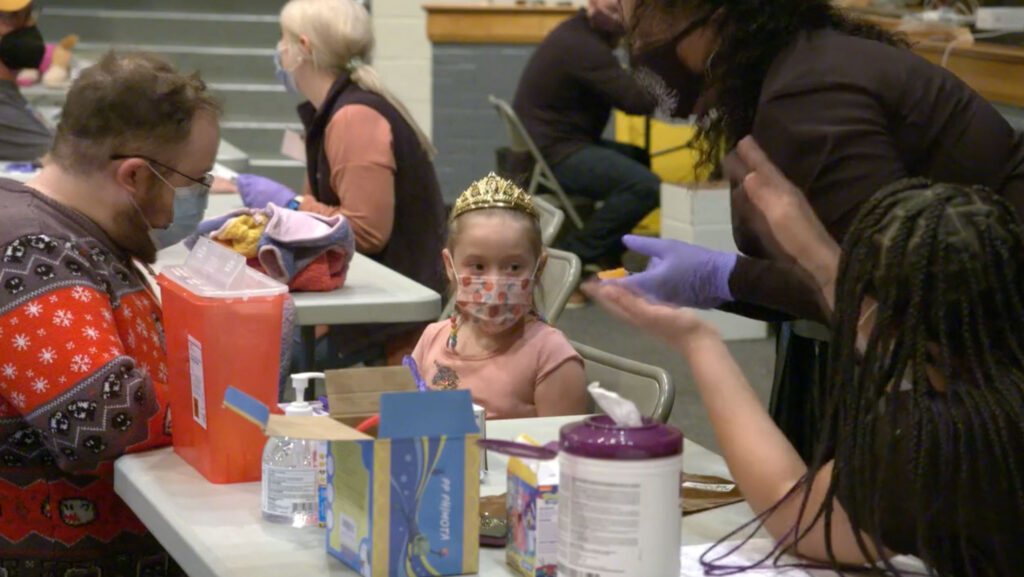Why it’s important for children to be up to date on vaccinations

By the Kentucky Department for Public Health
Immunization is one of the greatest public-health achievements, preventing tens of thousands of deaths, millions of cases of disease, and saving billions of dollars each decade.
Pediatricians play a crucial role in immunizing children and are a trusted source for vaccine information. Vaccine conversations with parents should begin as early as possible – at prenatal visits/interviews, ideally – as families often make immunization decisions during pregnancy through the first two months of a baby’s life.
On-time vaccination throughout childhood is essential because it helps provide immunity before children are exposed to potentially life-threatening diseases. Vaccines are tested to ensure they are safe and effective for children to receive at the recommended ages.
Immunity is the body’s way of preventing disease. When a baby is born, its immune system is not fully developed, which can put the infant at greater risk for infections. Vaccines reduce a child’s risk of infection by working with his or her body’s natural defenses to help safely develop immunity to disease.
Children are exposed to thousands of germs every day in their environment. This happens through the food the child eats, the air the child breathes, and things the child puts in his or her mouth.
Babies are born with immune systems that can fight most germs, but there are some deadly diseases they can’t handle. That’s why they need vaccines to strengthen their immune system.
Vaccines use very small amounts of antigens to help a child’s immune system recognize and learn to fight serious diseases. Antigens are parts of germs that cause the body’s immune system to go to work.
To simplify the decision-making process for parents and families, we’ve compiled five reasons you should make sure your children are up to date on their vaccination schedules.
What vaccines are required for children?
In Kentucky, to enter kindergarten, all children at least 5 years of age must have:
- Five doses of DTaP or DTP (diphtheria, tetanus, pertussis) or combinations of the two vaccines.
- Four doses of IPV or OPV (polio) or combinations of the two vaccines.
- Three doses of hepatitis B.
- Two doses of MMR (measles, mumps, rubella).
- Two doses of varicella (chickenpox), unless a health-care provider states that the child has had a diagnosis of typical varicella disease or verification of a history of varicella disease by a health-care provider or a diagnosis of herpes zoster disease or verification of history of herpes zoster disease by a health-care provider.
For sixth grade entry, age 11 or older, a child is required to have:
- One dose of Tdap (diphtheria, tetanus, pertussis) if it has been at least 2 years since the administration of the last dose of tetanus-containing vaccine.
- Two doses of varicella, unless a health-care provider states that the child has had a diagnosis of typical varicella disease or verification of a history of varicella disease by a health-care provider or a diagnosis or herpes zoster disease or verification of a history of herpes zoster disease by a health-care provider.
- One dose of MCV or MPSV (meningococcal vaccine).
- Rotavirus (RV)
- Haemophilus influenzae type b (Hib)
- Pneumococcal conjugate (PCV13)
- Influenza
- Hepatitis A
- Meningococcal
- Pneumococcal polysaccharide (PPSV23)
https://www.cdc.gov/vaccines/schedules/easy-to-read/child-easyread.html
https://www.cdc.gov/vaccines/parents/why-vaccinate/vaccine-decision.html
https://www.cdc.gov/vaccines/parents/why-vaccinate/index.html
https://www.aap.org/en/patient-care/immunizations/